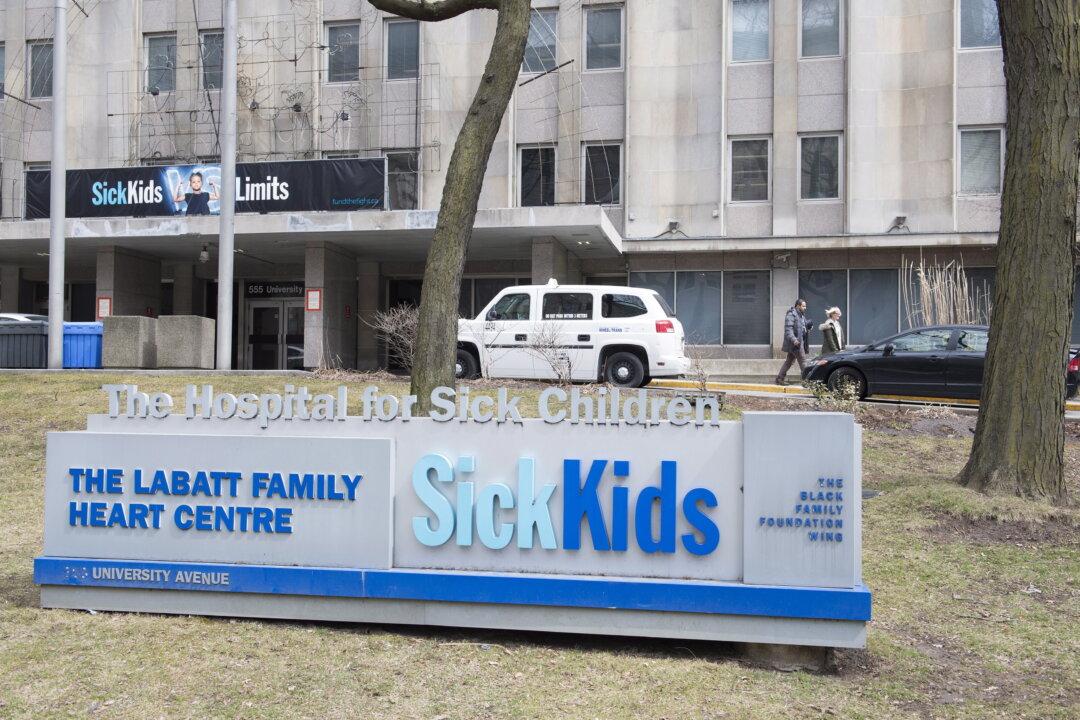Toronto’s Hospital for Sick Children says it has identified seven probable cases of severe acute hepatitis of unknown origin.
The research and pediatric hospital, also known as SickKids, says the cases were identified between Oct. 1, 2021, and April 30, 2022, and reported to Public Health Ontario (PHO).
“SickKids physicians from the Divisions of Infectious Diseases and Gastroenterology, Hepatology and Nutrition are aware of the international reports concerning children with severe acute hepatitis of unknown origin,” said spokeswoman Jessamine Luck in a May 11 statement.





